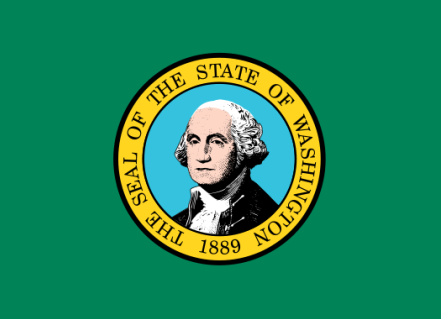Washington State Sues Comcast Over Service, Credit Practices
The smarter way to stay on top of the multichannel video marketplace. Sign up below.
You are now subscribed
Your newsletter sign-up was successful

Washington State Attorney General Bob Ferguson has filed a lawsuit seeking potentially more than $100 million against Comcast, claiming the cable company "illegally deceived" customers to "pad the bottom line by tens of millions of dollars."
Ferguson is alleging almost 2 million individual violations of the state's Consumer Protection Act, including that the state's dominant cable provider misrepresented its Service Protection Plan and "Comcast Guarantee," charged customers for calls it indicated were free and that it used improper credit screening practices.
Ferguson said he gave Comcast a heads up a year ago about the allegations, but that the company only started making changes recently, on the "verge" of the suit.
While he said it was the first such suit in the nation, he indicated it might not be the last: "[T]he Service Protection Plan is a nationwide program and many of the improper practices are used in all of Comcast’s markets," he said.
“This case is a classic example of a big corporation deceiving its customers for financial gain,” Ferguson said. “I won’t allow Comcast to continue to put profits above customers — and the law.”
Comcast countered in a statement that it had been working with Ferguson's office, but defended its products and services.
"The Service Protection Plan has given those Washington consumers who chose to purchase it great value by completely covering over 99% of their repair calls," said Comcast. "We worked with the Attorney General’s office to address every issue they raised, and we made several improvements based on their input. Given that we were committed to continue working collaboratively with the Attorney General’s office, we’re surprised and disappointed that they have instead chosen litigation. We stand behind our products and services and will vigorously defend ourselves.”
The smarter way to stay on top of the multichannel video marketplace. Sign up below.
The state claims Comcast "deceived" customers into paying $73 million for a "near-worthless" protection plan -- $4.99 per month -- that had limitations that were not disclosed.
"Comcast routinely claimed that the 'comprehensive' plan covered the cost of all service calls, including those related to inside wiring, customer-owned equipment connected to Comcast services and on-site education about products," said the suit. "However, Comcast did not appropriately disclose that the plan does not cover repairs to any 'wall-fished' wiring — wiring inside a wall — which constitutes the vast majority of wiring inside homes."
The lawsuit also claims that while Comcast's Customer Guarantee promises it won't charge for service visits resulting from Comcast equipment or network problems, "Comcast charged thousands of Washington customers for service calls that resulted from a Comcast equipment or network problem, including issues with Comcast HDMI and component cables, Comcast cable cards, and the installation of drop amplifiers, which fix Comcast signal problems. "
It also claims that, until June of last year, "Comcast provided its technicians with a service call fix code that expressly allowed them 'to add service charges to a normally not charged fix code.' In other words, the company created a code for technicians to add charges to a service call that should be provided at no cost."
Ferguson said that while Comcast requires a deposit for equipment, which can be waived for customers with good credit ratings, "on more than 6,000 occasions, Washington state consumers paid a deposit to Comcast, despite credit checks performed by the company revealing the customers had high credit scores."
He said that meant either the deposit was paid to avoid the check appearing on their credit report, or that customers were forced to pay even with a high credit score.
In addition to more than $73 million in restitution, Ferguson is seeking $1 million for service calls with the improper fix codes; up to $2,000 per violation of the CPA (a Washington state spokesperson had not returned a call at press time about whether that would apply to all $1.8 million alleged violations); and "broad injunctive" relief including requiring Comcast to clearly disclose the limitations of its service plans in and via its representatives, correcting the fix codes, and avoiding improper credit checks.
Contributing editor John Eggerton has been an editor and/or writer on media regulation, legislation and policy for over four decades, including covering the FCC, FTC, Congress, the major media trade associations, and the federal courts. In addition to Multichannel News and Broadcasting + Cable, his work has appeared in Radio World, TV Technology, TV Fax, This Week in Consumer Electronics, Variety and the Encyclopedia Britannica.

